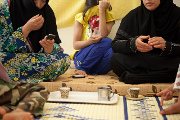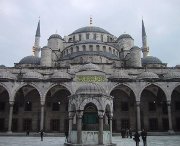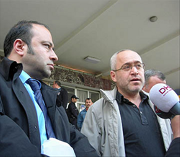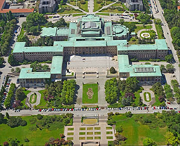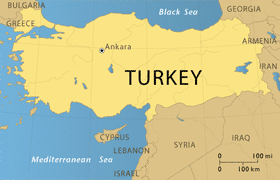 |
| Turkey |
Turkey (MNN) ― The past couple of months have been filled with reports of pastors being thrown in jail, churches being shut down, and Christians being persecuted for their beliefs. Kazakhstan, for example, just passed a new law that will affect over 500 different churches. "If they don't reach the number of membership of more then 50, they have to be liquidated within this year," says Sergey Rakhuba of Russian Ministries.
With religious freedom in mind, a conference is being held in Turkey, where over 50 organizations are coming together. Their goal? They are "concentrating on the evangelical church and helping evangelicals fight for their freedom--especially in those countries where Christianity is under pressure," according to Rakhuba.
This year, the conference is focusing on the area of Eurasia, which is made up of countries from the former Soviet Union. Says Rakhuba, "There are lots of issues today with sharp rise of religious freedom issues and persecution specifically in the countries of Central Asia."
Russian Ministries is "spearheading the initiatives" in terms of religious freedom. They are creating an awareness of the problem, educating pastors, and showing them how to lead their congregation in this situation.
"We are equipping the Evangelical church in those countries to fight for their freedom, to value their freedom, to educate their congregations about freedom, how to be careful with freedom. We believe that freedom is a gift of God we have to be careful with it, but at the same time everyone has a right to it," explains Rakhuba.
"Going to this consultation we will be presenting all these cases that represent Eurasia, Eurasian territories, and specifically evangelical churches that experience pressure, experience persecution," explains Rakhuba. "We will developing some policies and will be developing some letters that we will be sending to some of those oppressive governments, just making a statement on behalf of the entire evangelical global community in support of those who are persecuted."
Prayer is vital to the work that Russian Ministries and the 50 other organizations are going to be doing in Turkey. "I would greatly appreciate the evangelical family...to pray that God would give us guidance, God would give us wisdom."
Rakhuba also asks that you "continue praying for the evangelical church, that God would equip the church to not just survive but to be productive, be progressive in those situations, and continue reaching their communities with the Gospel. "



